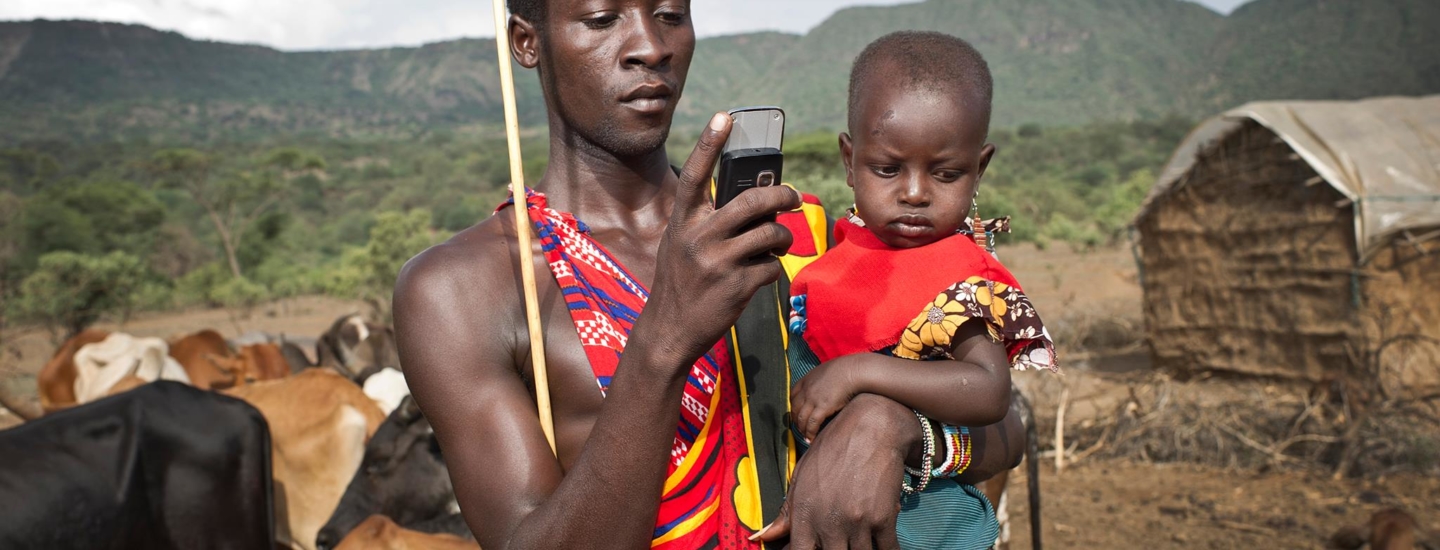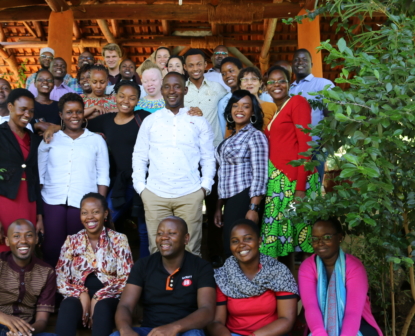Project
Action on Community Land Act
-
Amount Funded
199,448 EUROProject Duration
01 Aug 2017 - 31 Jan 2019 -
-
Lead organisation
-
The Drylands Learning and Capacity Building Initiative (DLCI) for Improved Policy and Practice in the Horn of Africa (DLCI) is an independent non-profit organisation registered in Kenya. DLCI promotes learning and advocacy on dry land issues throughout East Africa. In recent years it has focused on Kenya particularly the counties of Turkana, Isiolo, and Marsabit. It started operating in 2014, having grown out of the Regional Learning and Advocacy Programme for vulnerable dryland communities (REGLAP) which had been set up in 2008 as a consortium project to promote the resilience of dryland communities through policy and practice change in the Horn of Africa. From 2014-2015, DLCI was supported by ECHO and the Swiss Development Corporation (SDC) to increase the use by key stakeholders of evidence based good practice in their resilience policies and strategies. DLCI was funded from July to December 2016 by USAID/AHADI and the Christensen Fund to promote information provision on critical policy and practice issues to remote communities in Turkana, Marsabit and Isiolo counties. Following an initial assessment, it was decided to disseminate information on the new Community Land Act and requirements for public participation in county budgeting and planning.
-
Organisation
The Drylands Learning and Capacity Building Initiative (DLCI) for Improved Policy and Practice in the Horn of Africa (DLCI) is an independent non-profit organisation registered in Kenya. DLCI promotes learning and advocacy on dry land issues throughout East Africa. In recent years it has focused on Kenya particularly the counties of Turkana, Isiolo, and Marsabit. It started operating in 2014, having grown out of the Regional Learning and Advocacy Programme for vulnerable dryland communities (REGLAP) which had been set up in 2008 as a consortium project to promote the resilience of dryland communities through policy and practice change in the Horn of Africa. From 2014-2015, DLCI was supported by ECHO and the Swiss Development Corporation (SDC) to increase the use by key stakeholders of evidence based good practice in their resilience policies and strategies. DLCI was funded from July to December 2016 by USAID/AHADI and the Christensen Fund to promote information provision on critical policy and practice issues to remote communities in Turkana, Marsabit and Isiolo counties. Following an initial assessment, it was decided to disseminate information on the new Community Land Act and requirements for public participation in county budgeting and planning.
-
Project
In 2016, the Drylands Learning and Capacity Building Initiative (DLCI) carried out an extensive process of consultations with remote and marginalised communities in Turkana, Isiolo, and Marsabit to identify key concerns and issues around community land law and community benefits as well as participation of marginalised communities in policy and planning consultations. In the Voice project, Action on Community Land Act, DLCI continues with community consultations in these counties, to represent their voices and address their concerns in the community land registration regulations and support communities to register their land that will mitigate conflict and ensure strong sustainable management in future. DLCI also lobbies and raises awareness with government agencies to promote genuine community participation in policy and planning processes and improve the relationship and trust between government and communities in the new administration. DLCI promotes access to critical government policies and strategies and evidence based analysis by developing a policy portal on its website and developing policy syntheses and accessible communication materials on critical issues.
-
-
In 2016, the Drylands Learning and Capacity Building Initiative (DLCI) carried out an extensive process of consultations with remote and marginalised communities in Turkana, Isiolo, and Marsabit to identify key concerns and issues around community land law and community benefits as well as participation of marginalised communities in policy and planning consultations. In the Voice project, Action on Community Land Act, DLCI continues with community consultations in these counties, to represent their voices and address their concerns in the community land registration regulations and support communities to register their land that will mitigate conflict and ensure strong sustainable management in future. DLCI also lobbies and raises awareness with government agencies to promote genuine community participation in policy and planning processes and improve the relationship and trust between government and communities in the new administration. DLCI promotes access to critical government policies and strategies and evidence based analysis by developing a policy portal on its website and developing policy syntheses and accessible communication materials on critical issues.
-
Promotion of land ownership by communities facing marginalisation
DLCI, an influencing grantee partner carried out extensive public education and awareness raising on the Community Land Act and land registration processes in Isiolo, Marsabit and Turkana counties
The Community Land Act was gazetted on 7th September 2016 and the Community Land Regulations that guides its implementation was gazetted on 27th November 2017, with an amended version gazetted on 31st of August 2018. In the latter, the regulations set two critical deadlines;
- section 27 (1) required that within 12 months the Cabinet Secretary in the Ministry of Lands in consultation with the county governments, commission and other stakeholders develop and roll out a national program for public education and awareness on the provisions of community land Act 2016, and rights of the communities over community land.
- section 12(1): within 18 months, every county government in consultation with the communities, prepare and submit to the Cabinet Secretary an inventory of all unregistered community land within the county. It was initially thought that the deadline for submission of the inventories was 27th April 2019 as there was no guidance given by the Ministry of Lands.
This is when it was discovered that the county governments were not prepared and lacked technical knowledge to carry out the activity as required of them. DLCI supported the county governments meet the deadline while demanding information from the Ministry of Lands on public education. After a formal meeting with the Principle Secretary (PS) for Lands, it was clarified that the deadline for the inventories had been extended to February 2020 and that the deadline for the roll out of the public education and national program for awareness roll out will be August 2019. DLCI in collaboration with Chair of FCDC Land Sector Forum, mobilized and facilitated nine Counties – Mandera, Wajir, Garissa, Turkana, Marsabit, Isiolo, West Pokot, Tana River, Lamu to submit their inventories of unregistered community lands to the Cabinet Secretary of Land and Housing on 23rd April 2019
A Land Value Index Amendment Bill 2018 was passed by the National Assembly and Senate in February 2019 and assented to by the President in August 2019 to change clause 4(c) increase in the apparent value of the land occasioned by any development or improvement to the land— therefore, implies that all rangeland as is considered un-developed land will be zero rated. The bill rates all un-developed land in Kenya as having no value for compensation purposes as value is based on stamp duty and tax returns. This is of extreme concern given the number of compulsory acquisitions occurring in the drylands and the likely impoverishment of already communities facing marginalisation. As a result, DLCI carried out a study on how to value community land. A consultation meeting was held, attended by 30 land experts including the University of Nairobi and government. DLCI gave input to a brief on land acquisition by the CSO platform on Oil and Gas, also collaborated with an international community land expert, from Katiba Institute and developed a brief on challenges brought by the new community land legislations. This brief was presented to the Pastoralist Parliamentary group. A member of the Senate Land and Natural Resource Committee used the information in the DLCI policy brief to develop an amendment on the land value index Bill though was unable to block the passing of the Bill.
DLCI in collaboration with the Frontiers County Development Council (FCDC) organised the annual Pastoralist Leadership Summit conference that was attended by more than 700 delegates from 15 Parliamentary Party Group counties and 10 FDC counties. The summit resolutions included: preventing inter community conflict and promoting peace building and cohesion, and countering extreme violence, promoting the Census and Referendum, Economy and Livestock Sector, Equalization fund, pastoralist women empowerment, Community Land and Natural Resource management, and Education sector development, and delimitation of the constituency boundaries.
DLCRI also carried out extensive public education and awareness raising at the national, regional and sub county levels on the Community Land Act through workshops, community meetings and FM radio programs. Special workshops were held in 4 parliamentary constituencies in Marsabit County and two Constituencies in Isiolo County. Separate community leaders and members of County Assembles in Turkana Counties and meeting held with members of Parliament meetings with communities from Wajir South (Wajir County) and discussions held with members of parliament from three constituencies in Mandera County (Mandera West, Mandera South and Banisa).
One of the key wins was the use of community radios to disseminate information and raise awareness of Community Land Act and to engage citizens with more details. The project was also able to support women parliamentarians to activate the PPG women’s caucus, which has remained dormant since the 11th Parliament. As a result, the women leaders re-launched the caucus and elected an executive committee and held a press conference which was broadcasted on national TV. The project supported mobilisation of Civil Society Organisations (CSOs) partners to support long term strategy development for the pastoralist women Caucus in parliament.
Following the radio programmes, rightsholders are calling DLCI directly to inquire about issues of community land. Marginalised and discriminated community groups like mobile pastoralist have shown some indication of beginning the process of organising themselves to engage with their county government in preparation for registration of the community land. As a result, the county governments are starting to realise the urge to protect community land and potentially register multi-ethnic communities over large areas, rather than fragment the land. Through consultations and FM radio programmes, communities were consulted in the development of the community land inventories. Additionally, there was increased engagement of communities and responsiveness of government in shaping plans and policies for sustainable development in the Arid and Semi-arid lands (ASALs).
- News




